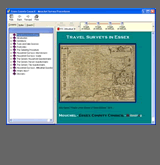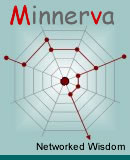 |
A common issue faced
by many organisations is that information does not always flow through
the system. More specifically, technical information might not be
exposed to the audience to whom it should be directed. As a result,
it is not uncommon for ‘wheels to be re-invented’ and
for information and knowledge to be lost. Put in the context of
data collection this can be a very costly, for it leads to the possibility
of data collected from different surveys being ‘incompatible’
when there is no reason for it to be. Data is costly and maximum
usage should be obtained from it.
To help address some of these issues, Minnerva
has worked on the development of the concept of establishing common
standards that are adopted for data definition and data structures.
In itself, this leads to the obvious notion that some form of compatibility
might exist between data from different surveys; but in turn this
can means that the ‘next’ survey is cheaper to do as
the systems and structures to process them should (mostly) be in
place.
But an important component in making this strategy
a success is to ensure that the knowledge and information backing
up these systems are openly available to all players in the process.
By developing an Open Documentation System that is easily accessible
then all definitions, assumptions, explanations etc can be seen
by all. Often the analyst working on collected data might not be
sure about the definitions used in the data collection; equally
the data collector might not realise the importance of how a question
is asked or indeed why a question is asked. By exposing the whole
process then a mechanism is provided though which these issues can
be addressed.
Such a system needs to be kept up to date, but
the marginal effort of doing this is far less than the cost of starting
over again each time a new survey is commissioned.
(Contact: Martin
Bach)
|

|
 |



